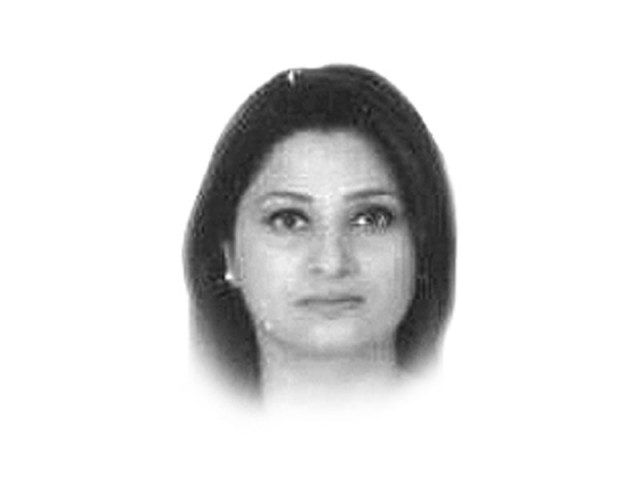Zardari’s golden presidency
Zardari was the only president who was all-powerful yet used his office, political capital to strengthen democracy.

The writer is a member of the Sindh Assembly
The people of Pakistan have endured various presidential tenures but their experience with their presidents has been rather unpleasant. We either had all-powerful military dictators like Ayub Khan, Yahya Khan, Ziaul Haq and Pervez Musharraf donning the garb of the president or we had powerful civilian presidents like Ghulam Ishaq Khan and Farooq Leghari who caused no less damage to the democratic process than their uniformed counterparts. The former group of presidents had mounted frontal assaults on elected parliaments and abrogated constitutions, the latter group was equally preoccupied with undermining the democratic process from within the existing constitutional framework. At the other end of the spectrum was a residual group of presidents who were so weak and so completely irrelevant that their presence as the symbol of the federation was hardly ever noticed by the people. Presidents Fazal Ilahi and Rafiq Tarar fall in this category.
In sharp contrast to the all-powerful and manipulative presidents or completely irrelevant and weakened presidencies stands the presidency of Mr Asif Ali Zardari, which is at an altogether different pedestal. While the true and lasting impact of his presidency would be judged in due course of time, it is not hard to see that history is likely to record his term as remarkable.
Asif Zardari was not only a democratically-elected president, he was the first and so far the only president who was all-powerful yet used the power of his office as well as his own political capital to strengthen the democratic process and the elected parliament rather than undermine it. In a culture where the smallest functionary of the government is fiercely resistant to any attempt to check let alone reduce his power, it was President Asif Ali Zardari who unilaterally and voluntarily surrendered virtually all his powers as president, which could adversely affect the growth of parliamentary democracy.
This included the power of dissolution of the elected assembly under the notorious provision i.e., Article 58(2)B of the Constitution. Likewise, the crucial power to appoint military chiefs under Article 243 of the Constitution was voluntarily returned by President Zardari to the elected prime minister. Some of the powers of the president, such as the appointment of the chief election commissioner, were not only surrendered by President Zardari but were substituted by a mechanism that involved the opposition in the process of appointments. This was not only unprecedented but truly significant as it takes great vision, maturity and tolerance to involve your political opponents in making constitutional appointments.
While he was the undisputed leader and co-chairman of the country’s largest political party and powerful arguments could have been advanced in support of a constitutional scheme that envisages a politically-oriented and active presidency, yet President Zardari voluntarily accepted the mildly worded order of the Lahore High Court that the presidency should be non-political.
This was the humble response of President Zardari in a historical context where the last occupant had remained in the presidency in military uniform for many years. He had even grafted a constitutional amendment to introduce the concept of a uniformed presidency. Yet, when eventually he was found violating even his own tailored constitutional bar on uniformed presidency and his further ambitions to contest elections in uniform were challenged in court, and when it was still not clear as to whether the judiciary would come in the way of his lasting ambition, he took no chances and subverted the Constitution and locked the judges. Contrast this to the response of President Zardari.
The true measure of any occupant of an exalted office is whether the office increased the stature of the occupant or he enhanced the office itself. By the time Mr Zardari was elected president of Pakistan, the office of the president was deeply mired in controversies and lacked the respect of the people. While under our constitutional scheme the president represents the unity of the republic, the presidency at that point of time symbolised authoritarianism, usurpation of power and subversion of the Constitution. The incumbent having remained in office in uniform for virtually a decade was in no mood to shed his uniform let alone leave the office. He was determined to and indeed got himself reelected from equally dubious assemblies and that too, close to the end of their own term.
Contrast those gloomy days to the present and it is not hard to understand why nothing better than democracy could possibly be conjured by the human mind. The peaceful, dignified democratic transition, independent judiciary and vibrant media are some of the fruits of democracy. While there are serious problems all around us and the people are facing serious economic hardship, along with problems of law and order and terrorism, yet there is no existential threat to us as a nation. There is certainly no threat to the elected parliament from the presidency as used to be the norm in the past.
If the democratic process, delicately nurtured in past few years, continues without any interruption, there is no reason why we cannot overcome our problems and prosper as a nation. The norms which are being introduced would become entrenched and bear results. While we now cherish the fruits of democracy, it would be unfair not to acknowledge the work of the gardener who lovingly toiled the garden which is beginning to yield fruit.
Published in The Express Tribune, September 8th, 2013.
Like Opinion & Editorial on Facebook, follow @ETOpEd on Twitter to receive all updates on all our daily pieces.















COMMENTS
Comments are moderated and generally will be posted if they are on-topic and not abusive.
For more information, please see our Comments FAQ